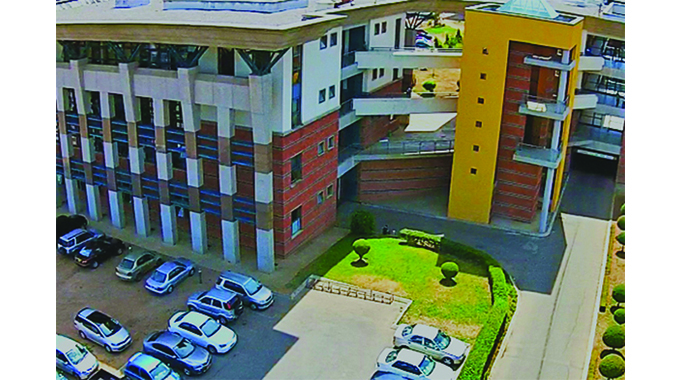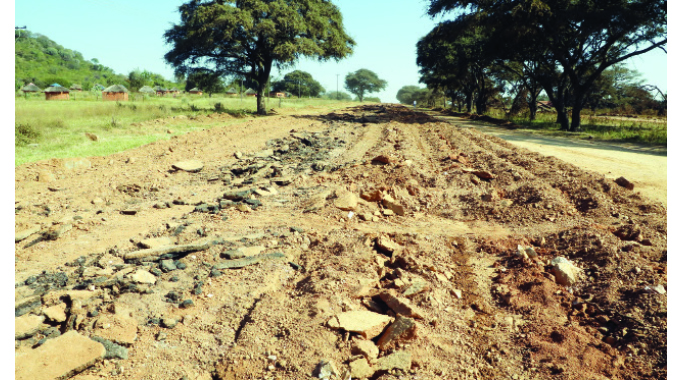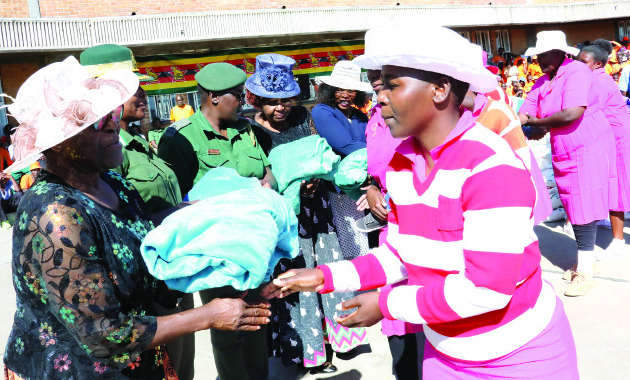Rampant sexual harassment at tertiary institutions

Sikhumbuzo Moyo, Senior Reporter
THERE is rampant sexual harassment of female students at most tertiary institutions in the country with victims suffering in silence for fear of being made to fail by the daring male perpetrators, a recent inquiry by legislators has revealed.
In some of the institutions, there is either no clear sexual harassment policy while for those with the document, the students are not informed of such.
The National University of Science and Technology (Nust) in Bulawayo was singled out as the only institution having taken deliberate steps to raise awareness of sexual harassment.

National University of Science and Technology (Nust)
The legislators visited nine universities, three polytechnical, and four teachers’ colleges around the country and came up with almost similar findings.
At Hillside Teachers’ College, for instance, the legislators were told that students actually reported the abuse to the principal but no action was taken.
The inquiry was carried out by the joint portfolio committees on higher and tertiary education, innovation, science, and technology development and women’s affairs, community, and small to media enterprise development. It was an inquiry on the prevalence of sexual harassment in higher and tertiary education institutions in Zimbabwe.
The objectives of the inquiry were, to ascertain the prevalence of Sexual Gender-Based Violence (SGBV) and Sexual Harassment (SH) in institutions of higher and tertiary learning, and to assess the challenges institutions of higher and tertiary education are facing in curbing SGBV and sexual harassment as well as to gather input from the students on the sexual harassment challenges they face and the proposed remedial measures.

The parliamentarians visited the University of Zimbabwe, Midlands State University, Great Zimbabwe University, Nust, Chinhoyi University of Technology, Africa University, Bindura University of Science Education, Harare Institute of Technology, and Lupane State University.
For the polytechnics, visited was Harare, Kwekwe, and Joshua Mqabuko Nkomo and for the teachers’ colleges, the legislators toured Hillside, Mkoba, Belvedere and Mutare.
According to the report, in most institutions, the majority of staff members and students professed ignorance about the existence of the sexual harassment policy and its contents.
At Lupane State University, the staff highlighted that the sexual harassment policy was formulated by the administration of the institution without the input and buy-in of the other staff members.
“Similarly, at the University of Zimbabwe, one staff member opined that he was unaware of the existence of the policy and he would have wished to have been informed about its existence upon joining the institution.
“More so, it was highlighted by both students and staff that sexual harassment was highly prevalent in the institutions of higher learning.

Among the students, the most pervasive form of sexual harassment was verbal while physical sexual harassment was more prevalent between the staff and students.
“The high prevalence of sexual harassment in institutions of higher learning was attributed to the rising poverty level and substance abuse among students,” reads the parliamentarians’ report.
The staff in most institutions, particularly at Solusi University attributed the high prevalence of sexual harassment in universities to the degradation of the socio-cultural and moral fabric as well as the increased exposure to media content such as pornography. It was highlighted that some students deliberately sat in a provocative manner during the face-to-face lectures.
“Most of the students, particularly the female staff and students were apprehensive in reporting cases.
In instances where reports were received the male students would report on behalf of the female students and the female students were reluctant to follow up on the case.
Most of the staff and students feared victimisation and stigmatisation that usually followed issues of sexual harassment. It was also pointed out that the reporting structures espoused in the sexual harassment policies were not clear and did not protect the student,” the committee reported.
At teachers’ colleges, the ‘thigh for a mark’ was prevalent particularly during the supervision of the Curriculum Depth Study (CDS) projects if the student wanted to pass and graduate with their diploma.
The students told the legislators that due to the power dynamics between the staff member and the student, the students were apprehensive to report such cases.
The students opined that they feared victimisation and stigmatisation that came with reports of sexual harassment. The students also highlighted that the reporting structures did not protect the students and did not offer a guarantee of reprieve after reporting such cases.
It was noted that in most cases, the perpetrators of the sexual harassment were the ones who sat on the disciplinary committees.
At Harare Polytechnic, the students said they were afraid of reporting sexual harassment cases because of fear of failure.
They said 60 percent of their overall assessment marks came from the continuous assessment tests which are marked by the lecturer and hence they cannot possibly open cases of sexual harassment against their lecturers.
“The lack of an institutional sexual harassment policy from the Ministry of Higher and Tertiary Education, Innovation, Science and Technology Development (MHTEISTD) had militated against the fight against sexual harassment in institutions of higher and tertiary learning.
When we went to the University of Zimbabwe, we were surprised, astounded, and perplexed to find that they do not have a Sexual Harassment Policy,” reads the legislators’ report.











Comments